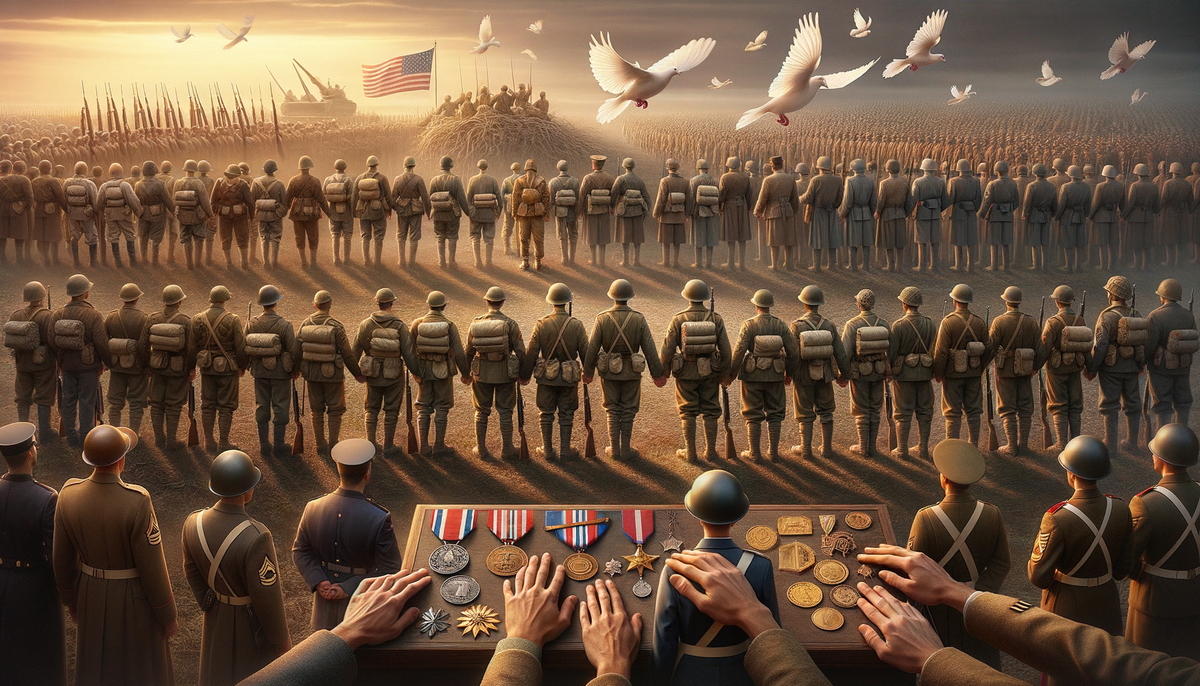Veterans Day: Honoring Courage, Service, and Sacrifice
Explore the evolution and significance of Veterans Day, commemorating the brave individuals who have secured our freedom.

Veterans Day: Honoring Courage, Service, and Sacrifice
Veterans Day, celebrated annually on November 11th, is a monumental occasion in the United States dedicated to honoring military veterans who have served in the U.S. Armed Forces. As one of the foremost holidays recognizing the contributions and sacrifices of military personnel, Veterans Day holds immense historical and social significance.
Historical Origins
The roots of Veterans Day date back to the end of World War I. Initially observed as "Armistice Day," the holiday commemorates the cessation of hostilities with Germany on November 11, 1918. This marked a pivotal moment, celebrated by President Woodrow Wilson in 1919 with a proclamation that emphasized peace and honored those who served in the Great War. By 1938, Armistice Day had become a federal holiday, dedicated "to the cause of world peace." Initially focused on World War I veterans, this observance laid the groundwork for a broader recognition of military service.
Transformation to Veterans Day
Following the conclusion of World War II and the Korean War, the United States sought to expand the embrace of this holiday to honor all veterans. The transformation officially took place in 1954 when Congress amended the holiday's name from "Armistice" to "Veterans" Day. This marked a pivotal shift in the holiday's significance, from commemorating the end of World War I to recognizing the valor and dedication of American veterans from all wars. President Dwight D. Eisenhower played a significant role, issuing the first "Veterans Day Proclamation" and solidifying the holiday's intent to foster peace and remember our veterans' sacrifices.
Significance Today
In contemporary America, Veterans Day serves as a day of national reflection and gratitude toward those who have protected the nation’s freedom and values. It is distinct from Memorial Day, as it celebrates all American veterans, living and departed, with a particular focus on those still with us who have served honorably. Many communities across the United States commemorate this day with various ceremonies, parades, and events designed to express the public's appreciation for those who have served in the armed forces.
Practical Takeaways and Actionable Advice
For professionals involved in veterans’ affairs or those managing veterans’ services, understanding the historical and contemporary significance of Veterans Day can enhance the ways in which you engage and support your community. Organizing events that both educate and celebrate can reinforce the value of service and sacrifice. Additionally, leveraging this day for outreach and fundraising efforts can provide essential support to veteran communities, ensuring that veterans receive the recognition and assistance they deserve.
Conclusion and Call to Action
As we prepare for Veterans Day, it is crucial for leaders and professionals to reflect on the myriad contributions of our veterans and the robust history that has shaped the holiday. Engaging innovative strategies in services offered to veterans, whether through policy-making, community engagement, or direct services, reinforces our commitment to those who have safeguarded our freedoms. We encourage you to explore how your organization can become more involved with veterans’ affairs, making impactful contributions to these worthy causes.




